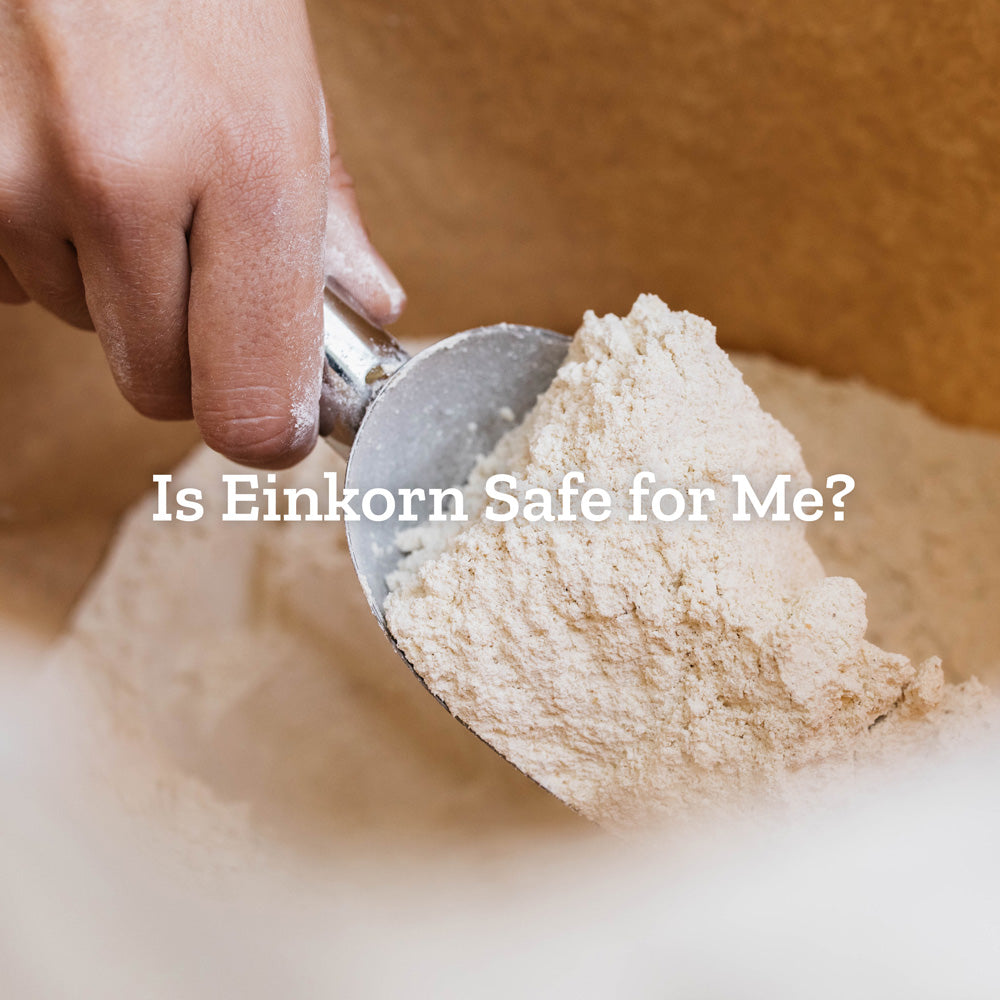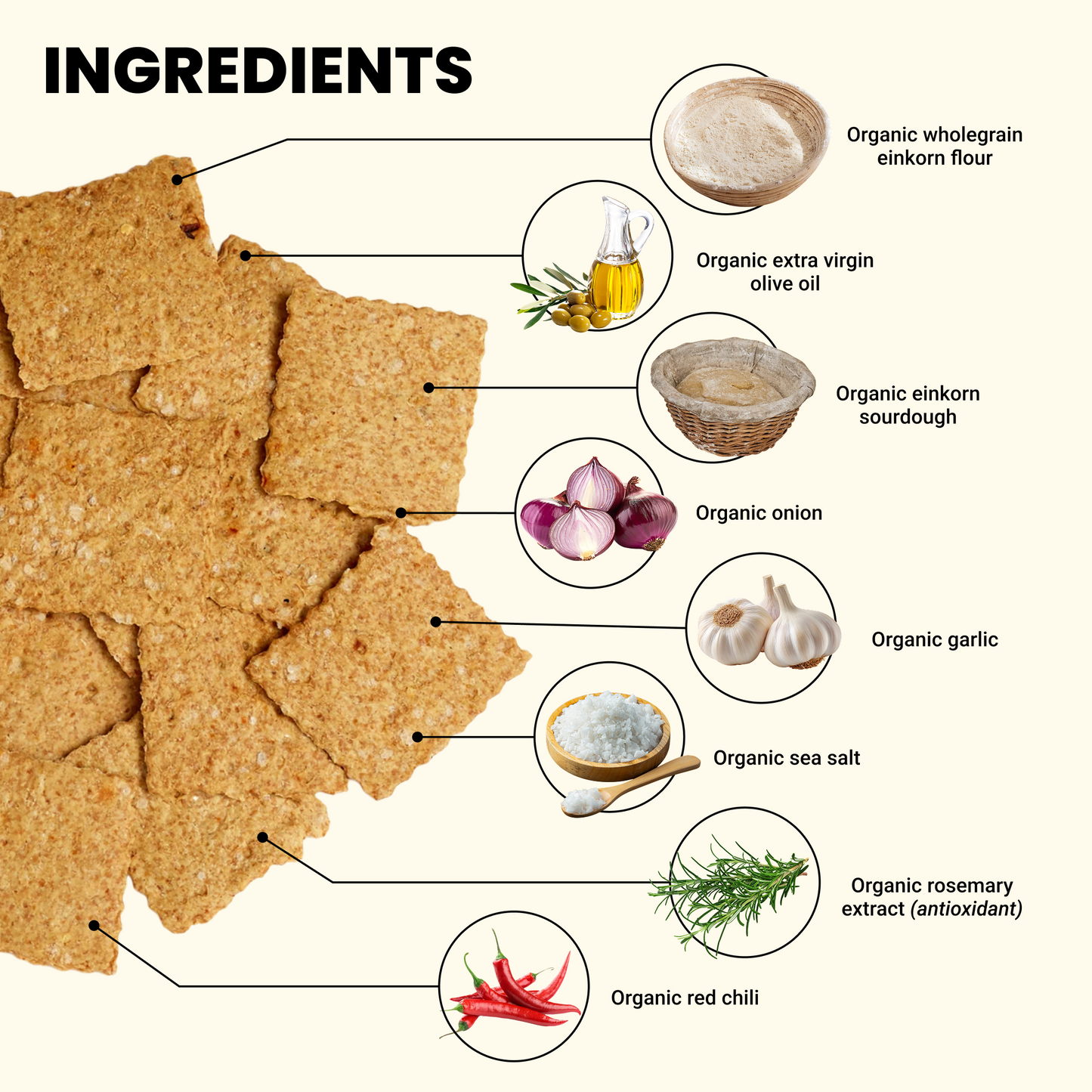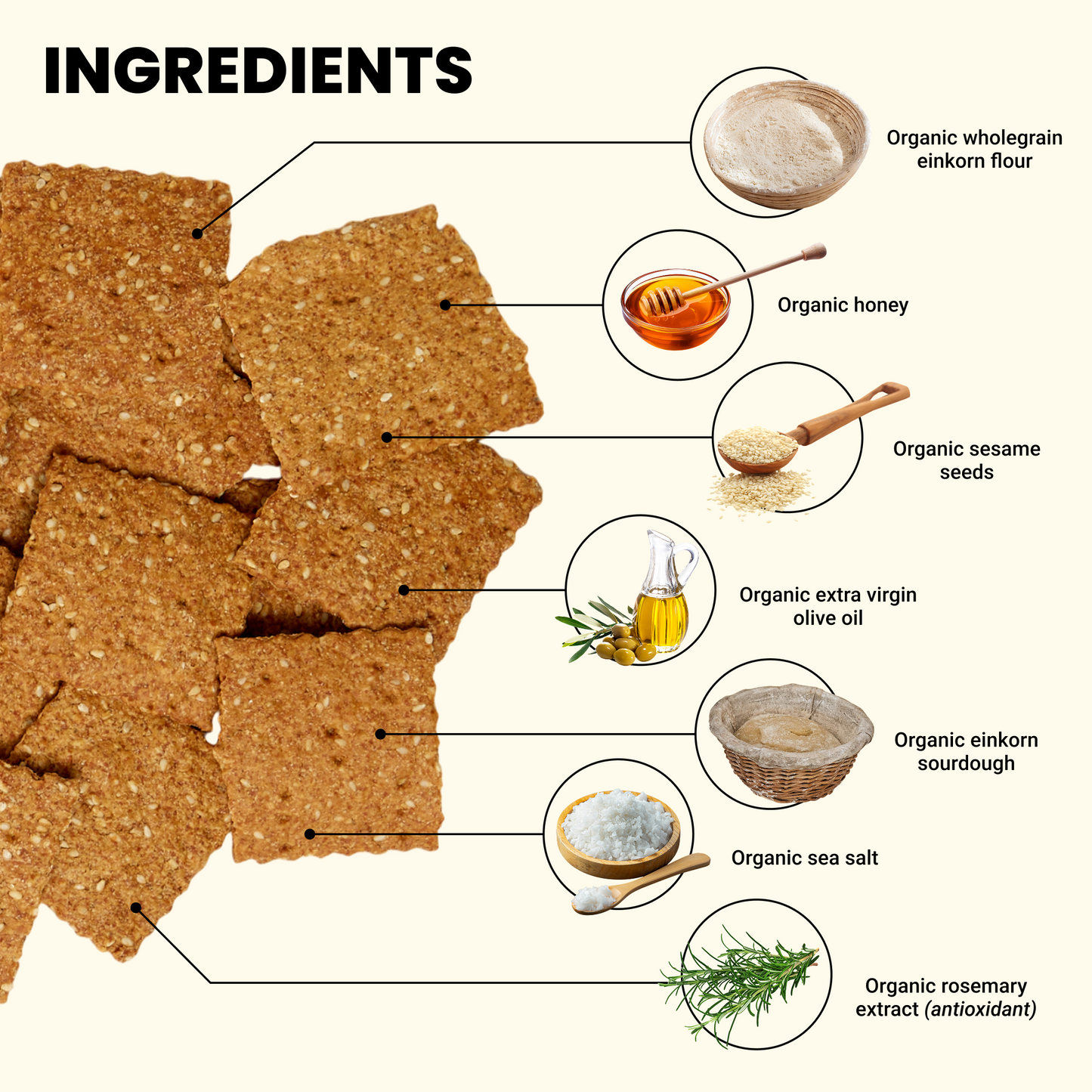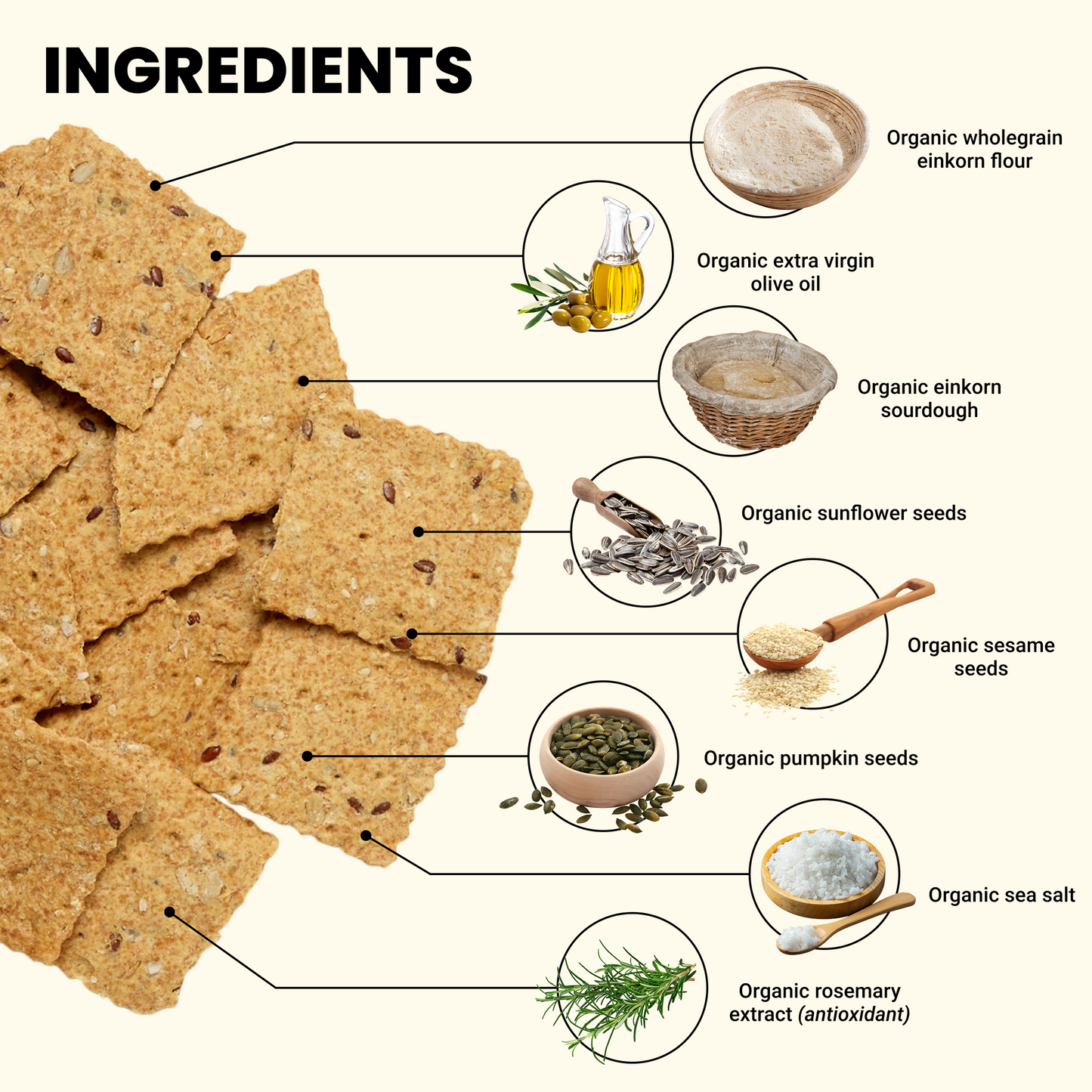
Isn’t einkorn the same as wheat?
Einkorn is ‘Earth’s First Wheat’!
Einkorn wheat remains just as pure as the day our hunter-gatherer ancestors stumbled upon it. Having only the original 14 chromosomes, and never hybridized, einkorn is far simpler than common wheat (Triticum aestivum). Having 42 chromosomes, common wheat, is far more complex, harder to digest and not a long term sustainable food crop.
Why has einkorn been replaced by common wheat?
Our ancestors discovered einkorn 14,000 years ago, realizing that it provided an amazing complete food that supplemented their high protein diet. Einkorn was easy to cultivate and it naturally grew in a region where rainfall, weather, and soil types varied dramatically. It was naturally resistant to common agricultural pitfalls, grew easily, sustained generations of our relatives and became a main foodstay.
As wheat began spreading from the ‘Fertile Crescent’ region, it was soon realized how desirable a crop it was to feed an ever growing population worldwide. Centuries would pass before humans had the technology and skills to alter einkorn. By 1960, the time modern scientists got their hands on the once simple grass, the world’s population was at 3 billion. Efforts to increase yields lead to a focus on hybridization of wheat, resulting in what we now know as wheat today. In just over 60 years a once sustainable, nutritious and genetically pure crop evolved into modern wheat, and what may be the cause of inflammatory bowel diseases that affect more than 3 million Americans.
Does einkorn have gluten?
Yes, einkorn does have gluten, but it breaks down easily and does not have remotely the same ratios of glutenin and gliadin that common wheat has. Gluten AA, found in the genetically pure strain of einkorn, is highly digestible, unlike the family of glutens found in common wheat. Not all glutens are created equal! Yes, glutens are a family of proteins with many subgroups determined by which grain they derive from.
That may come as a surprise, but with advancements in genetic modification, the human diet has strayed far from its core sustenance resulting in increased negative






